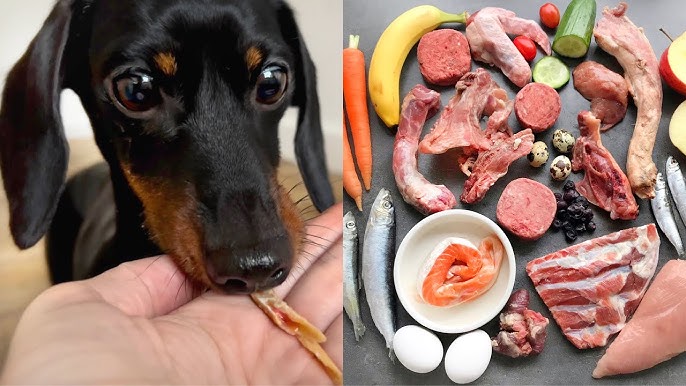Thinking about making homemade dog food for dachshunds? You’re not alone. Many dog owners are turning to homemade diets to provide their pets with fresh, nutritious meals. This guide will walk you through everything you need to know about feeding your dachshund homemade food, from the benefits to the best recipes.
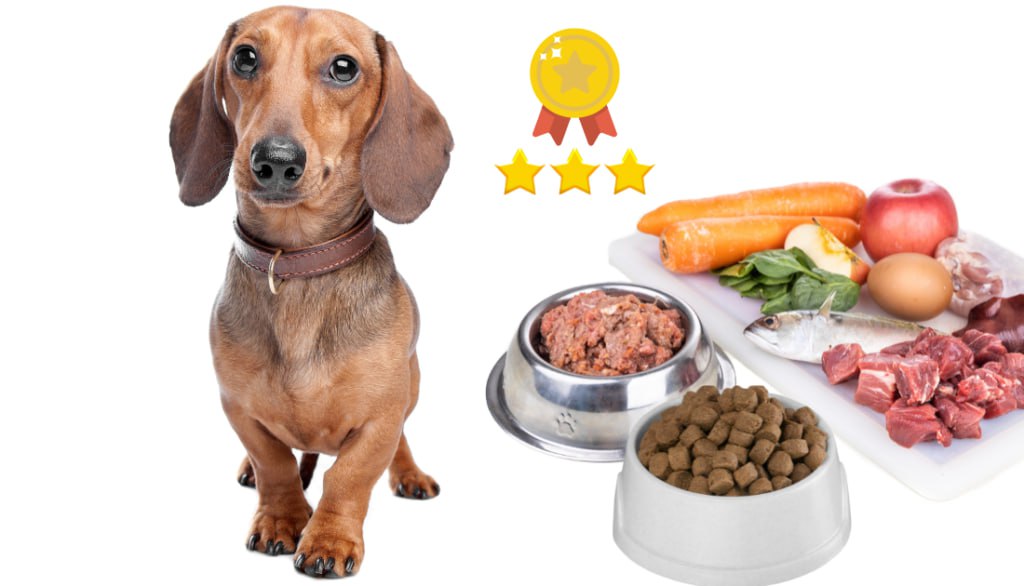
Benefits of Feeding homemade dog food for dachshunds
Feeding your dachshund homemade dog food for dachshunds offers numerous benefits that can significantly enhance their overall health and well-being. Here are some key advantages:
- Improved Nutrition: When you prepare your dachshund’s meals at home, you have complete control over the ingredients. This means you can choose high-quality proteins, fruits, vegetables, and grains, ensuring your dog receives balanced and optimal nutrition tailored specifically to their needs.
- Avoiding Allergens: Many commercial dog foods contain common allergens such as wheat, soy, and corn. By making your dachshund’s food at home, you can avoid these allergens and other additives that may cause digestive issues or skin problems in your pet.
- Weight Management: Obesity is a common issue in dachshunds, which can lead to serious health problems such as joint pain, diabetes, and heart disease. Homemade meals allow you to control portion sizes and select low-calorie, nutrient-dense ingredients to help maintain a healthy weight for your dog.
- Better Digestive Health: Fresh, whole foods are generally easier for dogs to digest compared to processed commercial foods. Homemade food can improve your dachshund’s gut health, resulting in fewer gastrointestinal issues such as bloating, gas, and diarrhea.
- Increased Energy Levels: High-quality homemade meals can provide your dachshund with more sustained energy, as they are free from fillers and artificial ingredients that can cause fluctuations in energy levels. This can lead to a more active and playful pet.
- Enhanced Flavor and Variety: Preparing meals at home allows you to experiment with different recipes and ingredients, providing a varied diet that can keep your dachshund interested and excited about mealtime. This can be particularly beneficial for picky eaters who may turn their noses up at commercial dog foods.
- Strengthened Bond: The process of preparing and serving homemade meals can strengthen the bond between you and your dachshund. Sharing mealtime can enhance your pet’s feelings of security and affection towards you, fostering a deeper connection.
By taking the time to prepare nutritious, homemade meals, you can ensure your dachshund enjoys a healthier, happier life with all the benefits that a tailored diet has to offer.
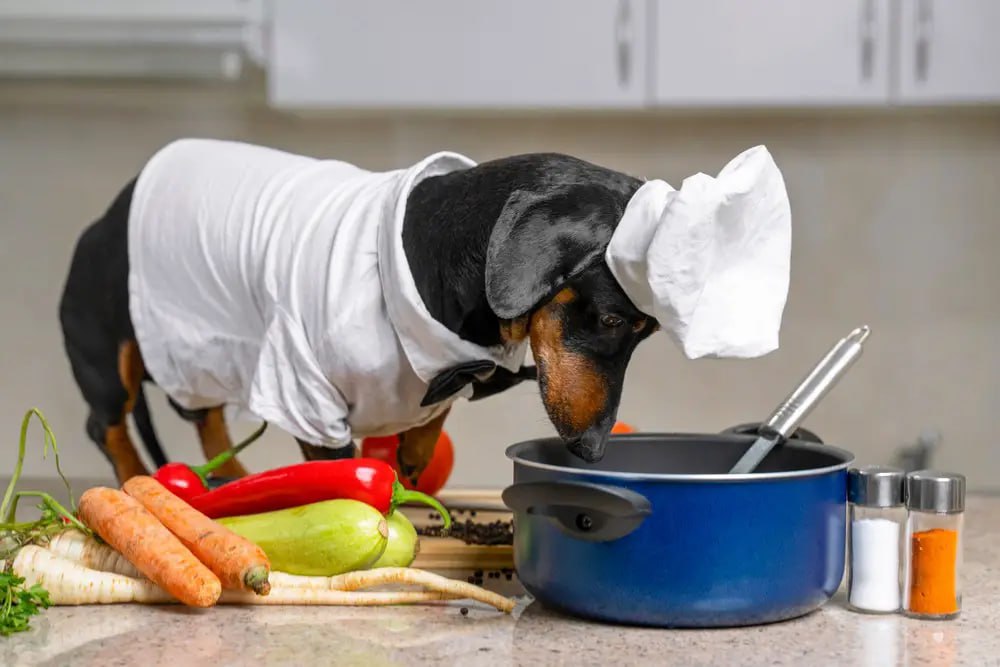
Basic Ingredients in homemade dog food for dachshunds
Meat and Protein Sources
Choose the Right Type of Meat
Protein is essential for your dachshund’s health. Choose high-quality meats like chicken, beef, turkey, or fish. Organ meats like liver can also be included but should not exceed 10% of the diet.
How to Process to Retain Nutritional Value
Cook the meat thoroughly to kill any harmful bacteria. Avoid adding spices, onions, garlic, or other seasonings that can be toxic to dogs.
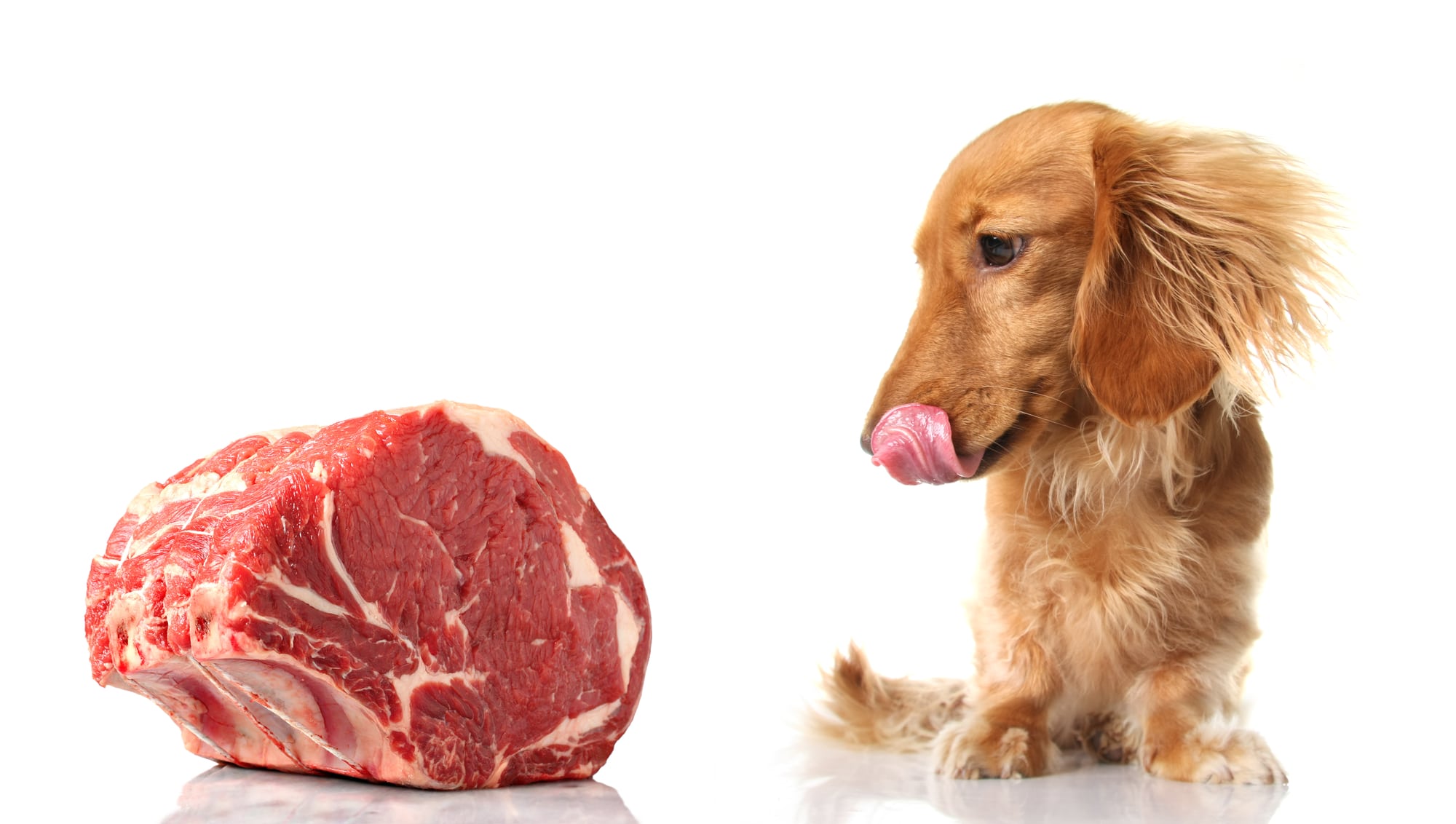
Starches and Carbohydrate Sources
Choose the Appropriate Type of Starch
Starches are a vital energy source. Good options include brown rice, quinoa, and sweet potatoes.
Safe Sources of Carbohydrates for Dachshunds
Ensure the carbohydrate sources are cooked and easily digestible. Avoid grains like wheat and corn, which can cause allergies in some dogs.
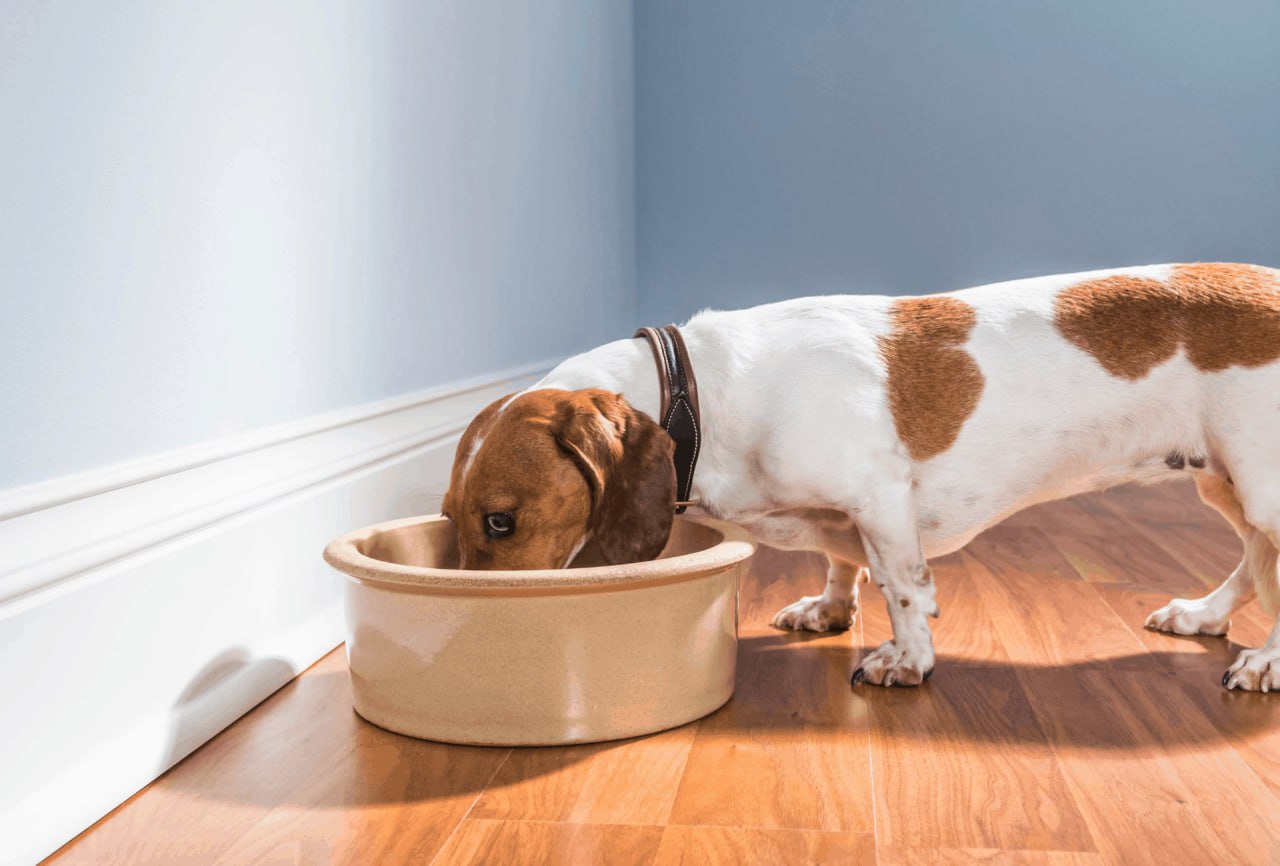
Vegetables and Other Foods
Effects of Vegetables in Homemade Dog Food
Vegetables provide essential vitamins, minerals, and fiber. They help in digestion and overall health.
Types of Dietary Supplements and Their Selection
Consider adding supplements like fish oil for omega-3 fatty acids, glucosamine for joint health, and vitamin E for a healthy coat.
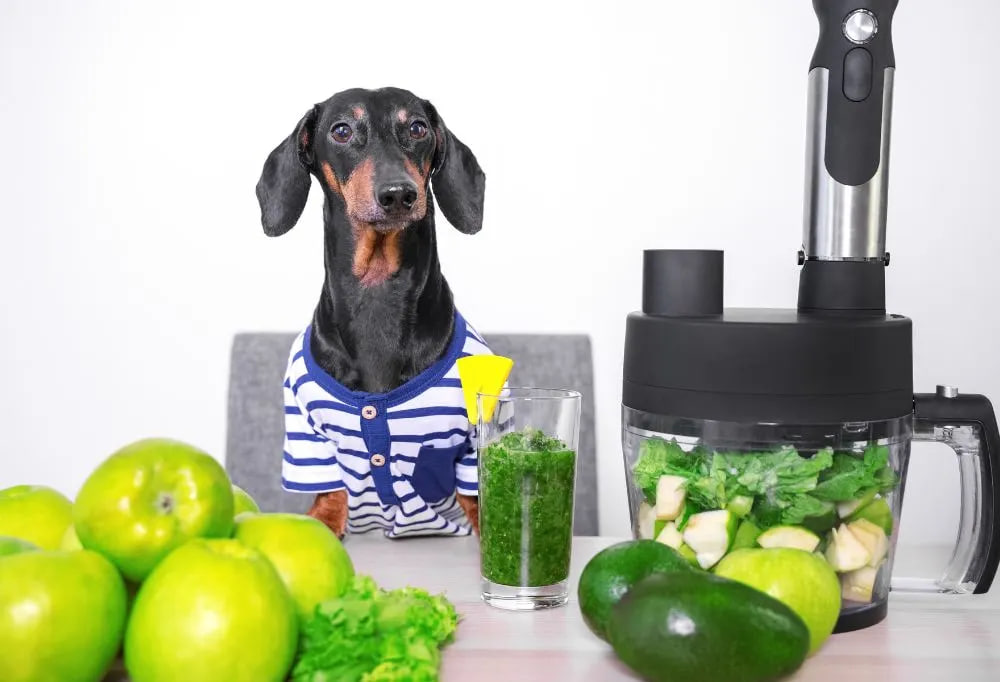
Fats and Other Nutritional Factors
What Does Fat Mean for Your Dachshund’s Health?
Healthy fats are crucial for your dog’s energy and coat health. Include sources like fish oil, flaxseed oil, and chicken fat.
Other Essential Nutrients and How to Provide Them Adequately
Ensure your dog gets all essential nutrients, including calcium, phosphorus, and taurine. You may need to add a canine multivitamin to ensure a balanced diet.
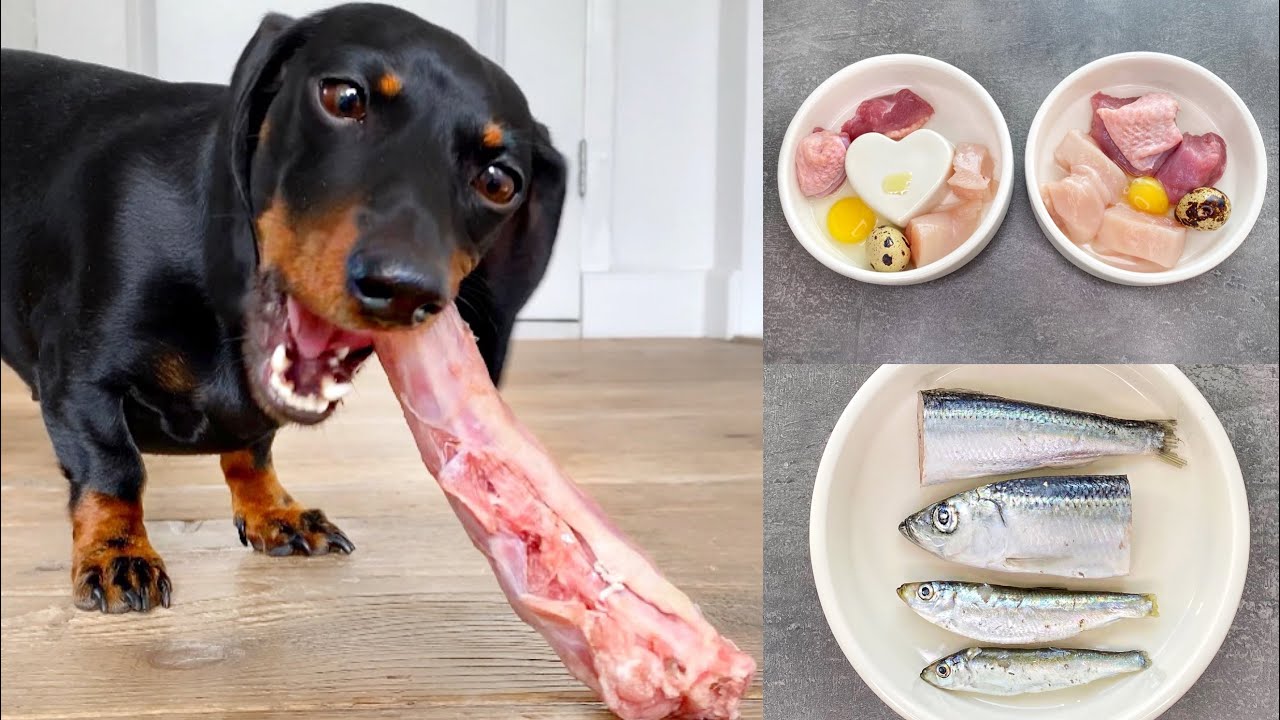
The Best homemade dog food for dachshunds
Recipe 1: Chicken and vegetables
Ingredient:
- 500g boneless chicken, cut into small pieces
- 1 cup vegetables (e.g. carrots, pumpkin, potatoes), chopped
- 1/2 cup steamed sticky rice (can be replaced with wheat or brown rice)
- 1 tablespoon olive oil
Instruct:
Instructions:
- Cook Brown Rice: Bring 1/2 cup of brown rice and 1 cup of water to a boil. Reduce heat, cover, and simmer for 15-20 minutes until rice is tender and water is absorbed.
- Prepare Vegetables: Steam or boil mixed vegetables (e.g., carrots, sweet potatoes, peas) until tender. Allow to cool and chop into small pieces.
- Sauté Chicken: In a large skillet, heat olive oil over medium heat. Sauté diced chicken until fully cooked and no longer pink.
- Mix and Prepare: Combine cooked chicken, brown rice, and mixed vegetables in a large bowl. Ensure all ingredients are thoroughly mixed for balanced nutrition.
- Portion and Store: Divide the food into smaller portions and allow to cool completely before serving to your Dachshund. Store any leftovers in the refrigerator to maintain freshness.

The Best homemade dog food for dachshunds
Recipe 2: Salmon and green vegetables
Ingredient:
- 300g fresh salmon, cut into small pieces
- 1/2 cup green vegetables (e.g., Chinese cabbage, mustard greens), chopped
- 1/4 cup brown rice
Instruct:
- Cook Quinoa: Boil 1/4 cup of quinoa in 1/2 cup of water. Reduce heat, cover, and simmer for 15-20 minutes until quinoa is fluffy and water is absorbed.
- Prepare Greens: Steam or boil greens (e.g., spinach, kale) until tender. Allow to cool and chop into small pieces.
- Sauté Salmon: In a large skillet, heat a tablespoon of olive oil and sauté diced salmon until fully cooked and flakes easily.
- Mix and Prepare: Combine cooked salmon, quinoa, and greens in a large bowl. Ensure all ingredients are well mixed for balanced nutrition.
- Portion and Store: Divide the food into smaller portions and allow to cool completely before serving to your Dachshund. Store any leftovers in the refrigerator for freshness.

The Best homemade dog food for dachshunds
Recipe 3: Beef and corn kernels
Ingredient:
- 400g beef tenderloin, cut into strips
- 1 cup fresh or frozen corn kernels
- 1/2 cup carrots, chopped
Instructions:
- Sauté Beef: In a large skillet, heat a tablespoon of olive oil and sauté thinly sliced beef until fully cooked and browned.
- Cook Corn: Boil 1 cup of corn kernels in 2 cups of water. Reduce heat and simmer for 20-25 minutes until corn is tender and water is reduced.
- Prepare Carrots: Sauté diced carrots with the cooked beef until carrots are tender.
- Mix and Prepare: Combine cooked beef, corn, and carrots in a large bowl. Ensure all ingredients are mixed well for balanced nutrition.
- Portion and Store: Divide the food into smaller portions and allow to cool completely before serving to your Dachshund. Store any leftovers in the refrigerator to maintain freshness.
These recipes are designed to provide balanced nutrition tailored to the health needs of Dachshunds. You can substitute ingredients based on availability and your dog’s preferences while ensuring they receive all the necessary nutrients for optimal health.
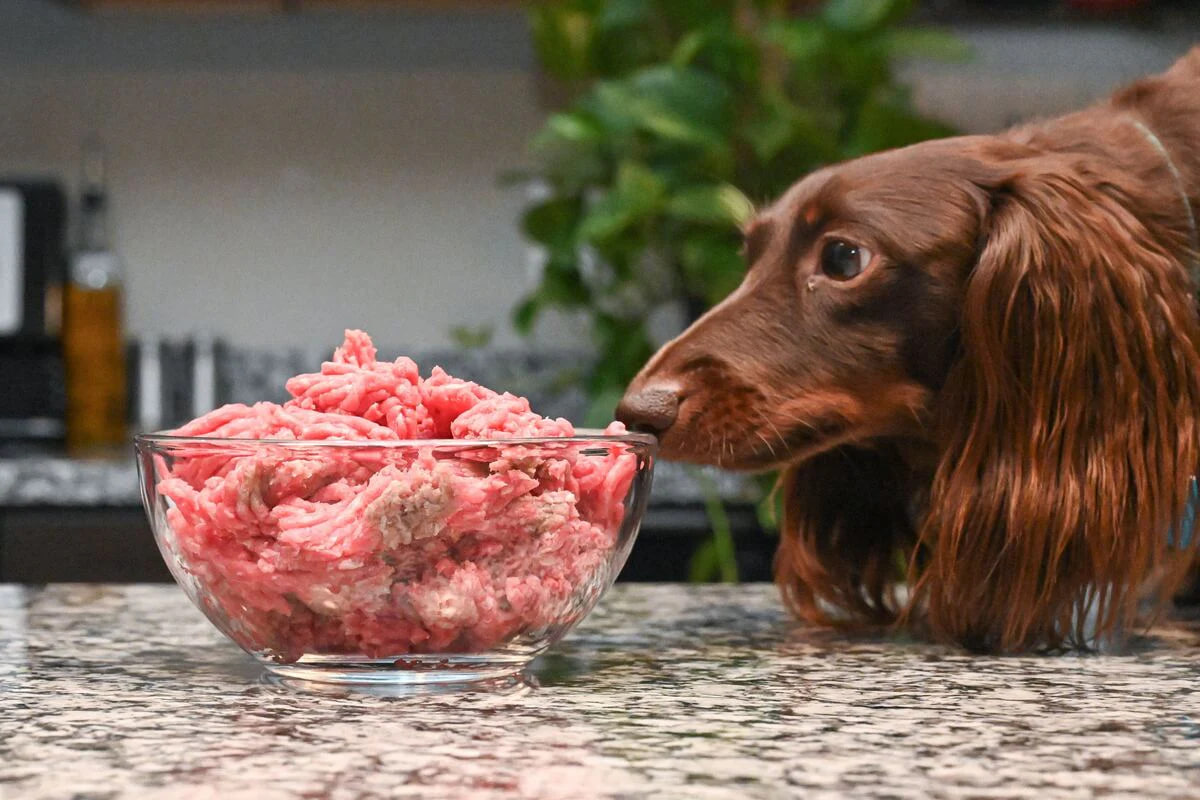
Health and Safety Aspects of Homemade Dog Food
Importance of Balanced Nutrition
Balanced nutrition is critical for maintaining your dachshund’s overall health. An imbalanced diet can lead to deficiencies or excesses in crucial nutrients, affecting your dog’s growth, energy levels, and organ function. A well-rounded diet should include appropriate amounts of proteins, fats, carbohydrates, vitamins, and minerals. Consulting with a veterinary nutritionist can help you design a meal plan that meets these dietary requirements.
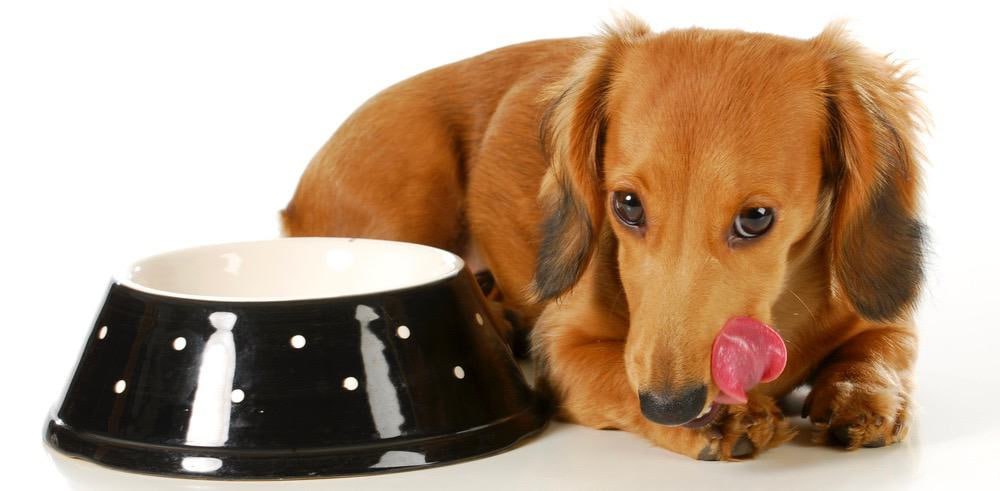
Potential Risks of Homemade Dog Food
Risk of Nutrient Deficiency
Preparing homemade dog food for dachshunds without proper knowledge can lead to nutrient deficiencies. For example, a lack of calcium and phosphorus can cause bone problems, while insufficient levels of vitamins like B12 and D can result in neurological issues and poor coat health. It’s important to understand the dietary needs of your dachshund and ensure each meal is nutritionally complete.
Foodborne Illnesses
Homemade dog food for dachshunds food must be prepared with food safety in mind. Raw or undercooked meat can contain harmful bacteria such as Salmonella and E. coli, which can lead to foodborne illnesses in both dogs and humans. To mitigate these risks, always cook meat thoroughly, clean utensils and surfaces after handling raw ingredients, and store food appropriately.
Monitoring Your Dog’s Health
Regular Check-Ups
Regular veterinary check-ups are essential when feeding your dachshund homemade dog food. These visits help monitor your dog’s health and catch any potential issues early. Blood tests and physical exams can reveal imbalances in diet, allowing you to make necessary adjustments before any serious health problems arise.
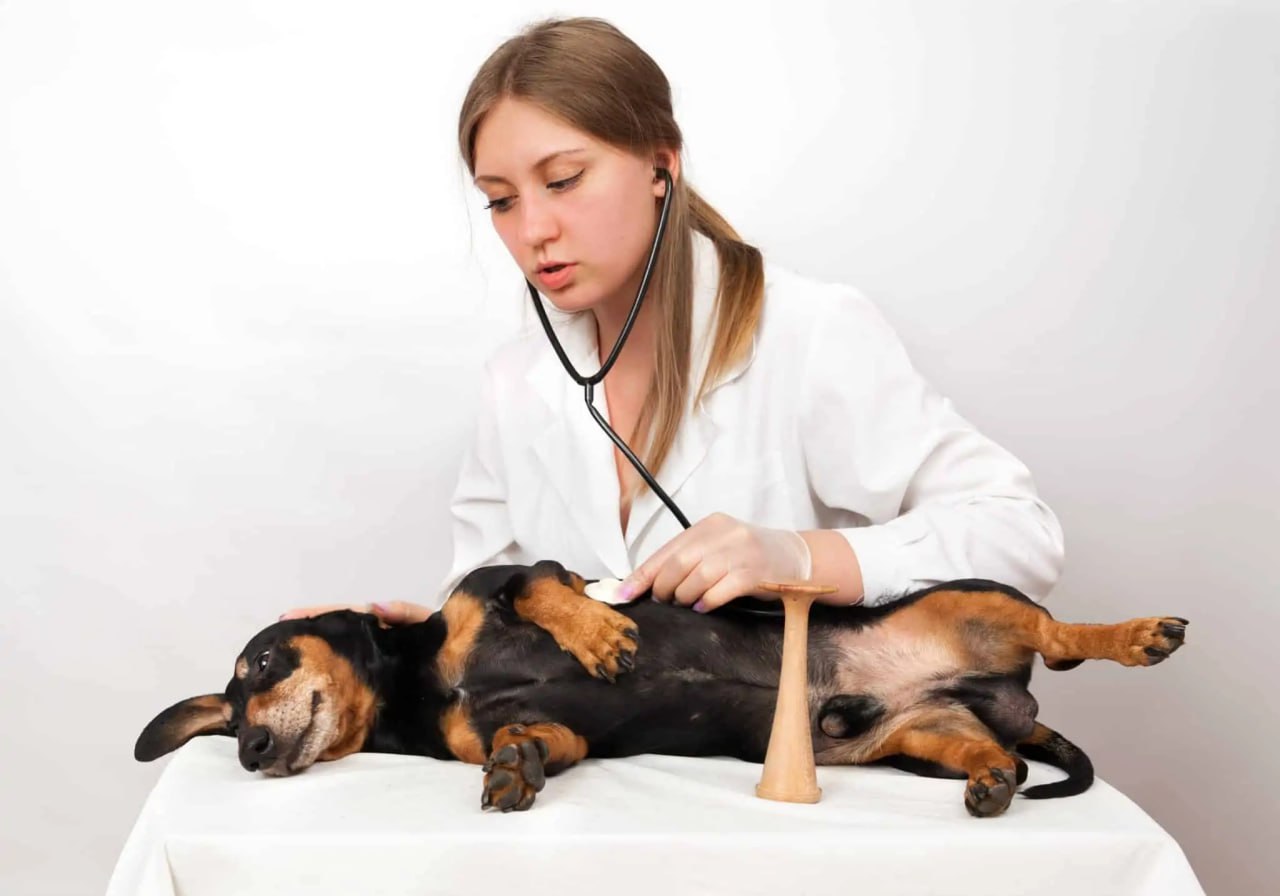
Observing Behaviour and Physical Appearance
Keep an eye on your dachshund’s behaviour and physical appearance. Changes such as lethargy, weight loss, poor coat quality, or digestive issues might indicate that their diet is lacking in certain nutrients. If you notice any of these signs, consult your veterinarian for advice on how to modify the food plan.
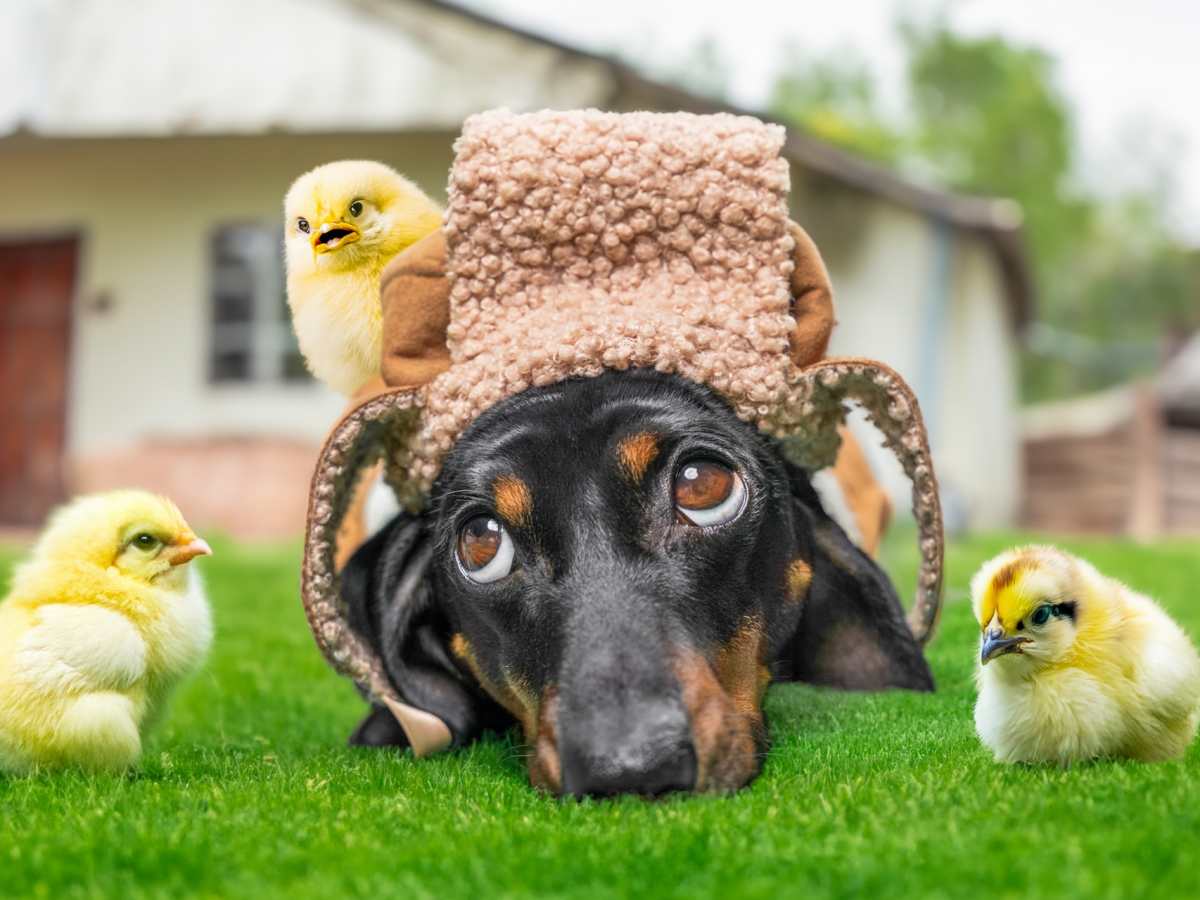
Safe Ingredient Selection
Human Foods to Avoid
Certain human foods are toxic to dogs and should be avoided entirely when preparing homemade meals. These include chocolate, grapes, raisins, onions, garlic, and anything containing alcohol or caffeine. Always research new ingredients before adding them to ensure they are safe for canine consumption.
Organic and Non-GMO Options
Choosing organic and non-GMO ingredients can further enhance the safety and quality of your homemade dog food for dachshunds. These products are less likely to contain harmful pesticides and additives, ensuring your dachshund receives the purest and most nutritious food possible.
Proper Storage and Handling
Storage Guidelines
Store homemade dog food for dachshunds in airtight containers to maintain freshness and prevent contamination. Refrigerated meals should be consumed within 3-4 days, while frozen portions can last up to 3 months. Label containers with preparation dates to easily track usage.
Safe Handling Practices
Adopt safe handling practices when preparing dog food, such as washing hands and utensils thoroughly, using separate cutting boards for meat and vegetables, and ensuring all ingredients are fresh and suitable for consumption. This reduces the risk of contamination and foodborne illnesses.
By adhering to these health and safety guidelines, you can provide your dachshund with a nutritionally balanced and safe diet, promoting their long-term well-being and happiness.
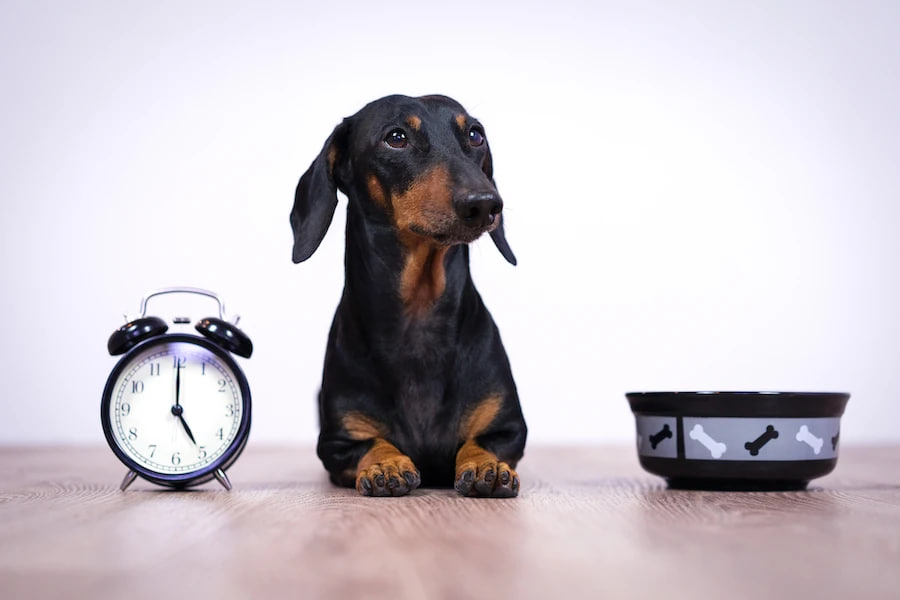
Frequently Asked Questions and Answers
Q: Should I feed my dachshund homemade food?
A : It depends on whether you have the time and knowledge to prepare safe and nutritionally balanced homemade food for your dachshund. When done correctly, homemade food can provide nutritional benefits and potentially reduce the risk of health issues, but you must ensure that the ingredients chosen and the preparation methods meet your dachshund’s nutritional needs.
Q: What can dachshunds eat when on a homemade dog food diet?
A: When considering what can dachshunds eat on a homemade dog food diet, it’s important to ensure their meals are nutritionally balanced and safe. Dachshunds can eat a variety of foods such as lean meats (like chicken, turkey, or beef), fish, eggs, brown rice, sweet potatoes, and a mix of fresh vegetables (like carrots, peas, and spinach). It’s crucial to avoid harmful foods like onions, garlic, grapes, and chocolate, which can be toxic to dogs. By carefully selecting and preparing ingredients, you can provide your dachshund with a wholesome and nutritious homemade diet that supports their health and well-being.
Q: What nutritional components should be included in homemade food for dachshunds?
A: Homemade food for dachshunds should include components such as protein (from meat, fish, eggs), carbohydrates (from rice, potatoes), fresh fruits and vegetables, and fats (from fish oil, vegetable oil). Supplementing with vitamins and minerals like calcium and phosphorus is also crucial for maintaining your dog’s health.
Q: How do I transition from commercial dog food to homemade food for my dachshund?
A: To transition from commercial dog food to homemade food, do it gradually and monitor your dog’s response. Start by replacing a small portion of commercial food with homemade food, observe your dog’s digestion and adjust the diet as needed to ensure they receive adequate nutrition and avoid digestive issues.

Conclusion and Summary
Homemade dog food for dachshunds is considered one of the best dog food for dachshunds. Homemade dog food for dachshunds offers better nutritional control, fewer allergies, improved digestion, and enhanced flavor.
Transitioning to homemade dog food for dachshunds can be a rewarding experience for both you and your dachshund. Start simple, consult your vet, and enjoy the process. Happy cooking!
—
Ready to get started on your homemade dog food journey? Share your favorite recipes and tips with us!

Cuddle Companions is your go-to resource for everything you need to keep your furry friends happy and healthy. We specialize in providing detailed and helpful information about the best foods, treats, and care practices for pets of all kinds. Whether you’re a seasoned pet owner or a new puppy parent, our team of experienced and passionate experts is dedicated to offering reliable advice and recommendations. At Cuddle Companions, we believe that a well-cared-for pet is a happy pet, and we’re here to help you every step of the way. Visit us at [bestdogfoodfordachshunds.net] for more information and resources.

